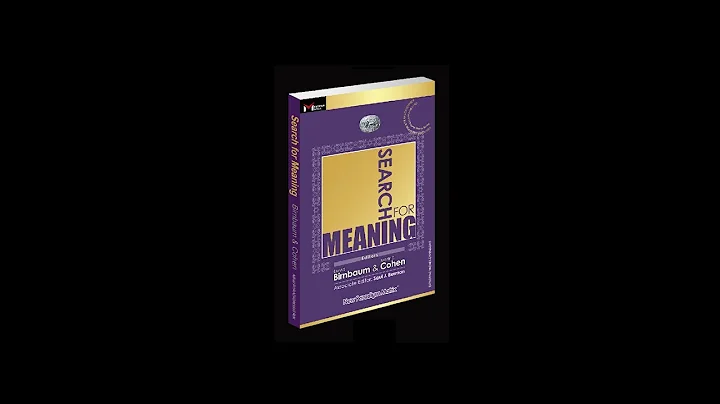Trusting God in Suffering: Unveiling the Book of Job
Table of Contents
- Introduction
- The Prologue: Job's Righteousness and Satan's Challenge
- The Friends' Responses and Job's Defense
- Elihu's Speech
- God's Response: The Virtual Tour and the Complexity of Justice
- Behemoth and Leviathan: Symbols of Disorder and Danger
- The Mystery of Suffering
- Job's Humility and Repentance
- God's Approval of Job's Wrestling
- The Epilogue: Restoration and Trust in God
The Book of Job: Trusting God in Suffering 📚
The book of Job is a unique and profound account found within the pages of the Bible. It stands apart from other biblical narratives due to its setting in the obscure land of Uz, far away from Israel. The book's main character, Job, is not an Israelite himself, and the author, who remains anonymous, intentionally avoids placing the story within a specific period of ancient history. Instead, the focus is solely on Job's experience of suffering and the profound questions it raises.
1. Introduction
The book of Job starts with a clear literary design. It begins and ends with a brief prologue and epilogue, respectively, while the central body of the text consists of dense Hebrew poetry. This poetic section contains dialogues between Job and his four friends, followed by a series of poetic speeches from God Himself. The purpose of the book is to delve into these conversations and explore the issues they raise regarding suffering and God's justice.
2. The Prologue: Job's Righteousness and Satan's Challenge
The prologue introduces us to Job, a blameless and upright man who honors God. It presents him as a paragon of virtue. However, this perfect image is soon challenged in the heavenly realms. Among the celestial beings is a figure known as "the Satan," or "the Accuser." The Satan questions God's policy of rewarding righteousness, suggesting that Job only obeys because he is blessed with prosperity. God allows the Satan to inflict suffering on Job as a means to test his righteousness.
3. The Friends' Responses and Job's Defense
After Job experiences intense suffering, his wife rebukes him, and three friends come to offer their wisdom and counsel. The friends, Eliphaz the Temanite, Bildad the Shuhite, and Zophar the Naamathite, hold to the belief that good people are rewarded and bad people are punished by God. They argue that Job must have committed some grave sin to deserve such suffering. Job vehemently defends his innocence and accuses God of being unjust. The debate between Job and his friends centers on the questions of God's justice and the explanation for Job's suffering.
4. Elihu's Speech
A surprise addition to the dialogue is Elihu the Buzite. Although not an Israelite, he shares the assumption about God's justice that Job and his friends hold. Elihu proposes that God uses suffering as a means to warn against sin or to build character and teach valuable lessons. While he does not claim to understand why Job specifically is suffering, Elihu emphasizes that Job is wrong to accuse God of being unjust.
5. God's Response: The Virtual Tour and the Complexity of Justice
In a dramatic turn, God appears in a whirlwind to respond directly to Job's accusations of injustice. God takes Job on a virtual tour of the cosmos, asking him questions about the intricacy and order of the universe. Through this tour, God reveals that Job's perspective is limited compared to the vast complexity of creation. The discussion emphasizes the intricate balance and the difficulty of carrying out justice in a world as complex as ours.
6. Behemoth and Leviathan: Symbols of Disorder and Danger
As part of His response, God describes two fantastic creatures, Behemoth and Leviathan. These creatures represent the disorder and danger that exist in God's good world. They demonstrate that while God's creation is amazing and very good, it is not perfect or always safe. Through the portrayal of these creatures, God challenges Job's and his friends' assumption that God must operate the world according to strict justice at all times.
7. The Mystery of Suffering
Throughout the book, the question of why bad things happen to good people remains unanswered. The ultimate reason for Job's suffering is never revealed. The prologue sets up the book's central questions about God's justice and how He operates in the universe. Job's suffering serves as a backdrop for these questions, encouraging readers to wrestle with the mystery of suffering rather than finding simplistic explanations.
8. Job's Humility and Repentance
In response to God's address, Job humbly repents and acknowledges his presumption in accusing God of injustice. He confesses his lack of knowledge and understanding of the vastness of God's wisdom and ways. Job's humility demonstrates a shift from demanding an explanation to embracing trust in God's character and sovereignty.
9. God's Approval of Job's Wrestling
Surprisingly, God affirms Job's wrestling with the questions of suffering. Despite Job's hasty and erroneous conclusions, God commends his honesty and the raw emotions he expressed throughout the dialogue. This reaffirms the importance of bringing our pain and grief to God honestly, engaging in sincere dialogue rather than settling for simplistic answers.
10. The Epilogue: Restoration and Trust in God
The book concludes with a short epilogue. God rebukes Job's friends for their simplistic views of His justice. He declares that their ideas do not align with the complexity of the world or His wisdom. Furthermore, God states that Job has spoken rightly about Him, though not necessarily in everything he said. Job's willingness to wrestle with God in prayer and his genuine desire to understand demonstrate a commendable faith. As a result, God restores Job's health, family, and wealth, not as a reward for righteous behavior, but as a generous gift of grace.
In conclusion, the book of Job does not provide a definitive answer to the problem of suffering. Instead, it invites readers to trust in God's wisdom and character when facing trials and tribulations. Rather than seeking simplistic reasons for suffering, the book encourages us to bring our pain to God, knowing that He cares and has a greater understanding of the complexity of our existence. Trusting in God's sovereignty and embracing the mystery of suffering becomes the key takeaway from the book of Job.







